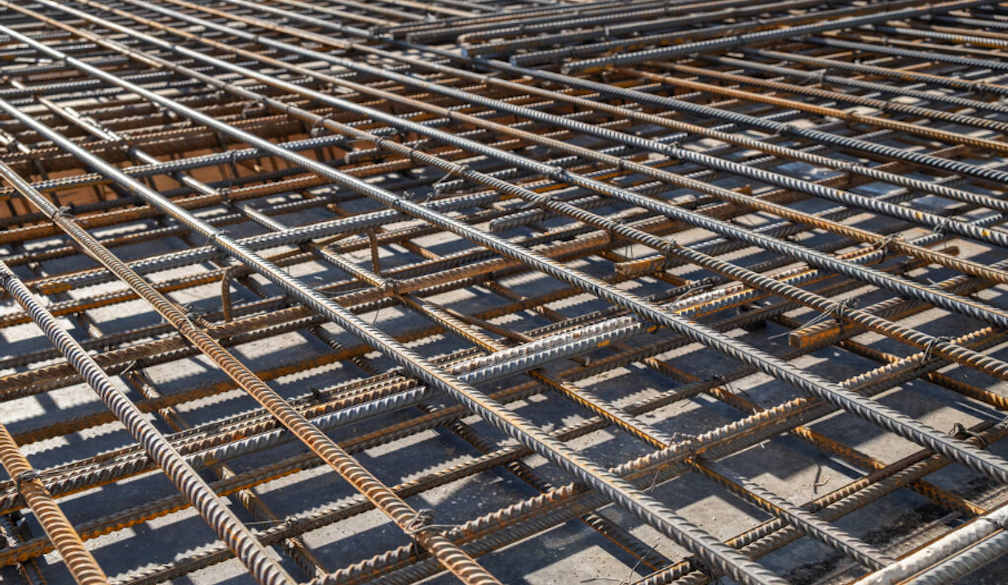Exploring Rectangular Mesh: Applications, Benefits and Buying Guide

🔍 Dive into our guide on Rectangular Mesh! Learn its applications, benefits & buying guide 👌, perfect for your needs. 🙌
Rectangular mesh, or welded wire mesh, is a versatile and widely used material in various industries due to its strength, durability, and adaptability. It consists of parallel wires welded together in a grid pattern, forming rectangular openings. It has a range of applications, from construction and fencing to industrial use, making it an essential material for various projects.
Applications of Rectangular Mesh
Construction Industry
One of the primary uses of rectangular mesh is in the construction industry. It is commonly used to reinforce concrete structures to increase strength and stability. In applications such as roads, bridges, and buildings, it is embedded in concrete to prevent cracking and enhance the durability of the structures. It is also used in walls, floors, and foundations, where its rigidity helps distribute loads evenly, reducing material stress.
Fencing and Barriers
Rectangular mesh is widely used to create secure and durable fences. Due to its strong construction, it is commonly used in both residential and commercial properties to create barriers. In addition to fencing around homes and businesses, it is frequently employed in agricultural settings to enclose livestock, secure crops, or demarcate land. The mesh’s uniform spacing and rigid structure make it an effective solution for maintaining security and containment.
Industrial Applications
In industrial settings, it is used for screening and filtration. The mesh’s uniform openings make it ideal for separating materials in mining, aggregate processing, or waste management. It is also used in shelving, partitioning, and protective cages for machinery. The mesh can be fabricated in various thicknesses, making it suitable for multiple industrial applications that require strength and ventilation.
Architectural and Design Use
Beyond functional uses, it has also found its place in modern architecture and interior design. It is often employed as a decorative element in buildings, providing a sleek and industrial aesthetic. Architects use it in facades, stair railings, and partition walls. Its adaptability allows designers to integrate it into various creative applications, seamlessly blending form and function.
Benefits of Rectangular Mesh
Strength and Durability
One of the key advantages of rectangular mesh is its strength. The welded intersections between the wires provide high tensile strength, making the mesh resistant to deformation even under heavy loads. This durability makes it a preferred material in demanding applications such as construction and industrial settings, where longevity is essential.
Corrosion Resistance
Rectangular mesh is available in various materials, such as stainless and galvanised steel, and has excellent corrosion resistance. This feature makes it ideal for outdoor applications or environments exposed to moisture and chemicals. Galvanised mesh, for instance, is coated with zinc to protect against rust, ensuring the mesh retains its integrity and appearance over time.
Versatility
It comes in different sizes, wire diameters, and materials, providing flexibility for various applications. The mesh can be customised to meet specific project needs, whether it is required for reinforcing concrete, fencing, or decorative purposes. Its adaptability makes it suitable for heavy-duty industrial use and lightweight residential or design applications.
Cost-Effectiveness
Rectangular mesh is relatively affordable compared to other materials used in similar applications. Its durability and low maintenance requirements contribute to long-term cost savings. For example, using mesh for reinforcement in construction can reduce the need for repairs or replacements, providing an economical solution for enhancing structural integrity.
Buying Guide for Rectangular Mesh
Material Considerations
The choice of material is crucial when purchasing rectangular mesh. Standard options include galvanised steel, stainless steel, and plain steel. Galvanised mesh is ideal for outdoor applications due to its rust resistance, while stainless steel offers excellent corrosion resistance and is suitable for more demanding environments. Plain steel mesh, on the other hand, is less expensive but may require additional coating or treatment to prevent rust in outdoor use.
Mesh Size and Wire Thickness
Rectangular mesh is available in various sizes and wire thicknesses. The size of the rectangular openings and the wire's diameter will determine the mesh's strength and functionality. For heavy-duty applications like concrete reinforcement or industrial use, thicker wire and smaller openings provide excellent stability and support. Thinner wire and larger openings may suffice for lighter applications, such as fencing or decorative purposes.
Finish Options
The finish of the rectangular mesh can affect its durability and appearance. Standard finishes include galvanised, powder-coated, and uncoated. A galvanised finish protects the mesh from rust, while a powder-coated finish can add a layer of protection and enhance the mesh's visual appeal. Choosing the right finish can ensure longevity and aesthetic appeal depending on the intended use.
Supplier Reputation
When buying rectangular mesh, it is essential to choose a reputable supplier. A reliable supplier will provide high-quality mesh that meets industry standards, ensuring the material performs as expected. To make an informed decision, it is advisable to read reviews, ask for product certifications, and inquire about the supplier’s manufacturing processes.
Conclusion
Rectangular mesh is a versatile material that serves numerous applications, from construction and fencing to industrial and architectural design. Its strength, durability, and corrosion resistance make it a valuable asset in various projects. By understanding the different materials, sizes, and finishes available, consumers can select the proper rectangular mesh for their needs. A reputable supplier and carefully considering the mesh’s intended use will ensure a successful investment in this reliable and cost-effective material.







